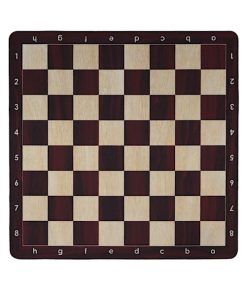Hegemony: Lead Your Class to Victory Hegemonic Project Games
$ 169,95 $ 67,98
The Nation is in disarray and a war is waging between the classes. The working class faces a dismantled welfare system, the capitalists are losing their hard-earned profits, the middle class is gradually fading and the state is sinking into a deep deficit. Amidst all this chaos, the only person who can provide guidance is… you. Will you take the side of the working class and fight for social reforms? Or will you stand with the corporations and the free market? Will you help the government try to keep it all together, or will you try to enforce your agenda no matter the cost to the country?
Hegemony is an asymmetric politico-economic card-driven board game for 2-4 players that puts you in the role of one of the socio-economic groups in a fictional state: The Working Class, the Middle Class, the Capitalist Class and the State itself.
The Working class controls the workers. The Capitalist class controls the companies. The Middle class combines elements from both the Working class and the Capitalist. It has workers who can work in the Capitalist’s companies but it can also build companies of its own, yet smaller. Finally the State is trying to keep everyone happy, providing benefits and subsidies when needed but trying also to maintain a steady income through taxes to avoid going into debt.
While players have their own separate goals, they are all limited by a series of policies that affect most of their actions, like Taxation, Labor Market, Foreign Trade etc. Voting on those policies and using their influence to change them is also very important. Through careful planning, strategic actions and political maneuvering, you will do your best to increase the power of your class and carry out your agenda. Will you be the one to lead your class to victory?
Hegemony is heavily based on actual academic principles such as Social-Democracy, Neoliberalism, Nationalism and Globalism, and allows players to see their real world applications through engaging gameplay. There are many ways to achieve hegemony- which one will you take?
Speedy Shipping and professional packaging
Our long-standing relationships with UPS FedEx DHL and other international carriers allows us to offer an array of shipping services. Our warehouse staff is highly trained and will pack the items according to the exact and precise specifications. Your items will undergo an exhaustive inspection and properly secured before they are delivered. We deliver to thousands of clients every day in a variety of countries. This is an indication of our determination to become the largest online retailer worldwide. The distribution centers and warehouses distribution are located in Europe and the USA.
Orders with more than 1 item are assigned processing periods in accordance with the item.
Prior to shipment, we check the item thoroughly before sending the items. Most orders are delivered within 48 hours. The delivery time should be between 3-7 days.
Returns
The inventory is always changing and we are unable to completely manage it due to the fact that several parties are involved, including our factory and warehouse. Stocks can be changed at any moment. You may not receive your order once the order has been made.
Our policy is valid for a period of 30 days. If 30 days have passed in the past since you purchased however, we're unable to give an exchange or refund.
In order for your item to be considered eligible for return, it must be unopened and in the condition you received it. It must also be returned in the original packaging.
Related products
Board Game
Board Game
Board Game
Board Game
Board Game
Board Game
Board Game
Board Game
Board Game
Board Game
Board Game
Board Game
Board Game
Board Game
Board Game
Board Game
Board Game
Board Game
Board Game
Board Game
Board Game
Board Game
Board Game
Board Game
Board Game
Board Game
Board Game
Board Game
Board Game
























































